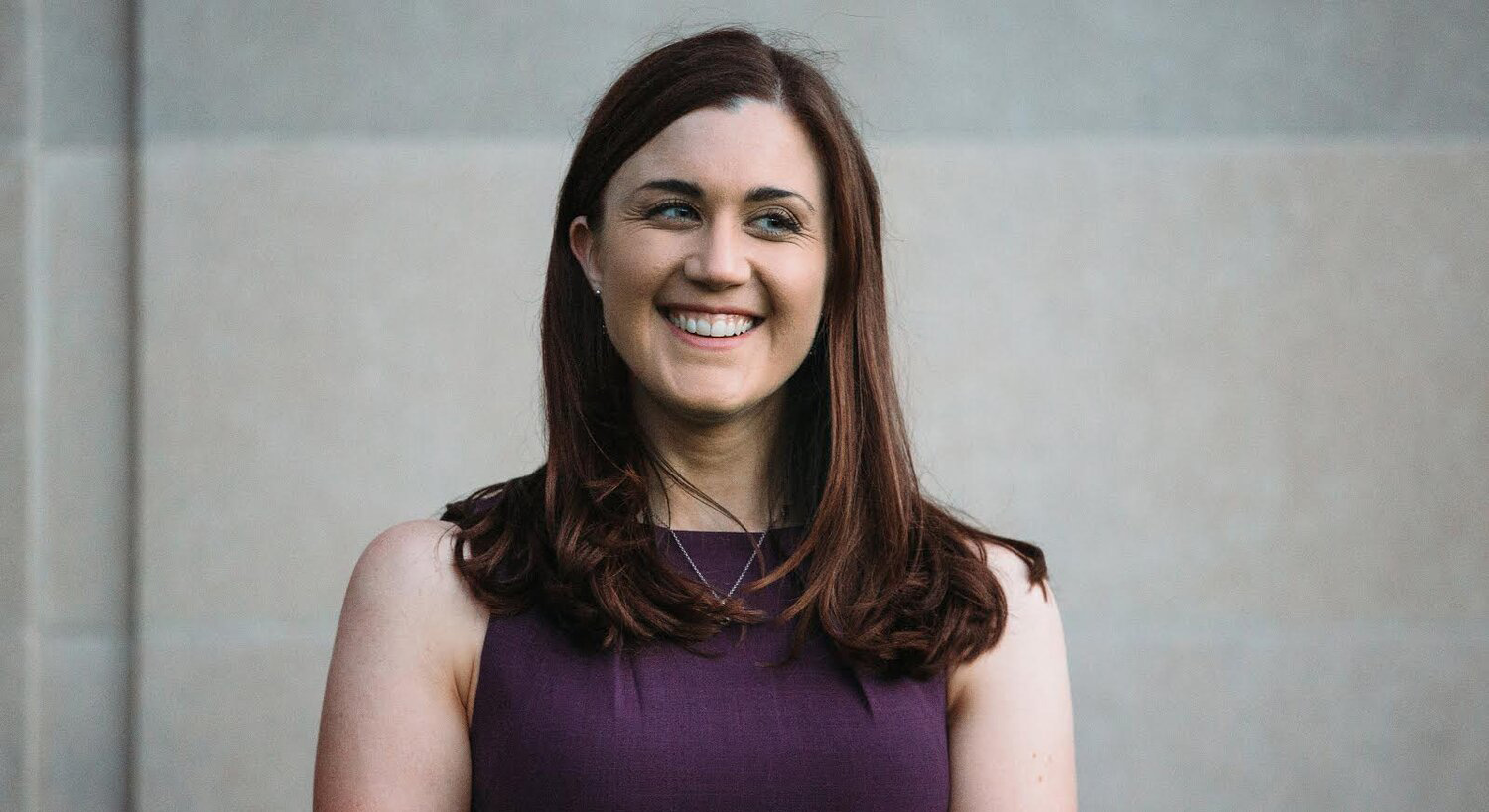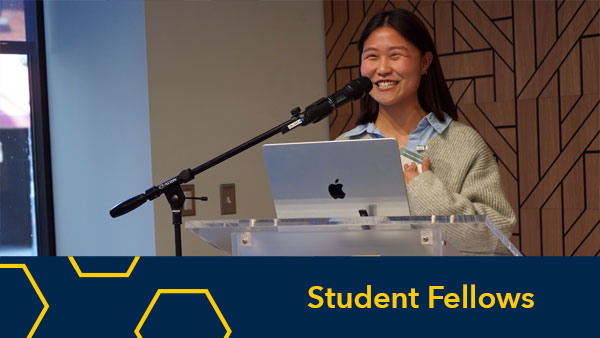
Sean Corp, Content Strategist
Dr. Elyse Aurbach, the public engagement lead at the Center for Academic Innovation (CAI), has been named the APLU Civic Science Fellow and will be co-hosted as part of the national fellowship program by the Association of Public and Land-grant Universities (APLU) and CAI.
The goal of the fellowship is to examine how different types of universities and their associated infrastructures, including mid-level centers, institutes, and Cooperative Extension, support and recognize efforts in public engagement and diversity, equity, inclusion, and justice (DEIJ). The intention is to develop a framework for action for leaders in different university contexts to align rhetoric, policy, and resourcing to support work that results in public impact research.
While many institutions and organizations have committed to the importance of public engagement and DEIJ work, the current advancement, reward and promotion structures are constantly cited as barriers by faculty and staff working in these areas. And while the centers, institutes, and Cooperative Extension provide direct engagement and support, that support isn’t always connected to these reward structures.
In her role as the APLU Civic Science Fellow, Aurbach will lead a project that builds off work already underway at APLU and CAI, focusing on modernizing scholarship, public impact research, DEIJ, the Cooperative Extension system, and public engagement. The project will also draw inspiration from reform efforts across higher education – including innovation, entrepreneurship, and teaching & learning – to help inform the development of the framework for action.
“I am extraordinarily excited and honored to join the Civic Science Fellows Network and to partner with APLU to learn from different institutions’ approaches to supporting and recognizing public engagement and DEIJ,” said Aurbach. “This incredible opportunity will directly connect U-M and CAI’s public engagement initiative to national leaders and conversations about how to modernize scholarship to connect infrastructure with policy in support of different forms of impactful work.”
“Hosting the fellowship within CAI allows U-M and APLU to align efforts around DEIJ and public engagement,” said James DeVaney, the founding executive director of the Center for Academic Innovation. “This will enable us to convene people and organizations who are evolving new approaches to recognizing faculty and staff for this vital work. It is exciting to see Dr. Aurbach acknowledged for her important contributions to public engagement at U-M and across higher education.”
The fellowship is supported by the Rita Allen Foundation, the Kavli Foundation, the APLU’s Offices of STEM Education and Research, and Food, Agriculture, and Natural Resources (FANR), and the Center for Academic Innovation.
“I am extraordinarily excited and honored to join the Civic Science Fellows Network and to partner with APLU to learn from different institutions’ approaches to supporting and recognizing public engagement and DEIJ,” said Aurbach. “This incredible opportunity will directly connect U-M and CAI’s public engagement initiative to national leaders and conversations about how to modernize scholarship to connect infrastructure with policy in support of different forms of impactful work.” —Elyse Aurbach
In her fellowship role, Aurbach will serve as a connector and convener, relating efforts at the University of Michigan to APLU’s network of 240 public and land-grant universities. The fellowship will foster new pilot experiments at U-M and explore how to scale promising practices across the nationwide network of universities with various sizes, structures and needs.
Aurbach’s project will feature four specific elements. The first will focus on synthesizing two decades of research around advancement, reward and promotion related to public engagement and DEIJ.
The second will develop multiple case studies of reward, infrastructure and resourcing, staffing, and evaluation at several public and land-grant universities, exploring institutional models for public engagement and DEIJ efforts.
The third element will develop a framework for potential actions to better support engaged and DEIJ-oriented scholars at different levels of the academic hierarchy and across institutions.
Finally, the fourth element will connect to the national Civic Science Fellows program and network to explore how to leverage complementary efforts. This cohort consists of more than 20 Civic Science Fellows, a network dedicated to strong, diverse, and inclusive connections between science and civic life through a growing network of emerging leaders, who are enthusiastic advocates for science communication, civic science, and Public Impact Research.
Aurbach has spent her career building communities of like-minded individuals and resources supporting a broad understanding of effective science communication and public engagement. This includes building a framework of public engagement, tools for practice, and initiatives like the Public Engagement Faculty Fellowship, which provides faculty an opportunity to receive training, a greater understanding of available resources, deep reflection on public engagement practices, and an opportunity to launch a project.
“APLU is excited to host Dr. Aurbach in helping our members modernize scholarship,” said Dr. Kacy Redd, APLU Associate Vice President, Research and STEM Education in announcing the fellowship. “Addressing our most critical challenges and accelerating public impact will require cross-campus support at all levels, a willingness to broaden what counts as meaningful scholarly work by faculty and staff, and agreed upon measures and evidence of impact across the whole academy.”
This material is based upon work supported by the Association of Public and Land-grant Universities (APLU) and the Office of Food, Agriculture, and Natural Resources (FANR), the University of Michigan’s Center for Academic Innovation, the Rita Allen Foundation, and the Kavli Foundation as part of the Civic Science Fellows program. Any opinions, findings, and conclusions or recommendations expressed in this material are those of the authors and do not necessarily reflect the views of the supporting organizations.


